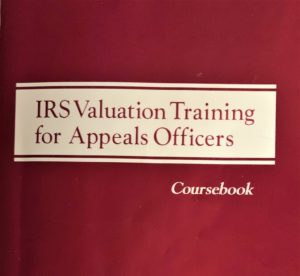Tax Affecting: After the Kress and Jones Cases, Will Cecil be “Strike Three”?
By James W. Brockardt, MBA
For nearly 20 years, the Internal Revenue Service persistently won on the issue of tax affecting pass-through entities in the US Tax Court. In August 1999, I had just finished a presentation to the American Society of Appraiser’s conference in Boston. My topic: Recent Court Cases with a Valuation Twist. I had covered all of the current decisions, and the big emphasis back then was
Well, a lot has happened since then, especially in the past 12 months or so, and this blog contains a summary of some potentially game-changing court cases.
But, back to basics, why is tax affecting pass-through entities even an issue? There are two primary reasons. First, business appraisers derive market data – discount rates and multiples – from public C corporations, and the entity-level tax provision allows for an “apples-to-apples” comparison. Second, taxes are a way of life and even in the case of a pass through entity that pays no taxes at the entity level, there is a burden on entity cash flow because of tax distributions.
Before Gross, the IRS Position was clearly noted in the IRS Valuation Training for Appeals Officers (1997): For valuation purposes, an entity appraiser needed only to adjust the earnings of an S corporation to reflect the estimated corporate taxes had the S election not been made.
In Gross, the Court noted that it is unreasonable to tax affect the projected earnings of an S corporation without establishing that the S election would be lost. The Judge also rejected the advice in the aforementioned IRS training manual as lacking “analytical support.” After a successful appeal, there ensued the multi-decade field day for the IRS until….
Kress v. United States (123 AFTR 2d 2019-1224 (ED Wisc. March 26, 2019). In Kress, both experts tax affected the earnings of an S corporation valued by reference to public analogs. The Government expert also made an adjustment “to reflect the value of GPB as an S corporation,” a very common reconciling technique. The taxpayer’s expert prevailed, however.
Later in the year, in Aaron U. Jones v. Commissioner (T.C. Memo 2019-101), the primary dispute was whether a timber farm should be valued by the NAV method (the Government expert) or by means of an income-based methodology (taxpayer). The taxpayer’s expert applied the DCF method, tax affected – at individual, not corporate rates, to allow for differences between pass-through entities and C corporations – and prevailed. The Court noted that tax affecting was fact-based and that Gross and its progeny had rejected tax affecting based on the specific facts of those cases.
Which brings us to Estate of William A. V. Cecil, Sr. v. Commissioner (Docket No. 14639-14, and Estate of Mary R. Cecil v. Commissioner, Docket No. 14640-14): This gift tax case was tried in February 2016 but remains undecided (and the donors have since died). Notably, however, both experts tax affected pass-through earnings once again. The outcome? It remains to be seen (or heard), but many think that the tide has turned, so stay tuned.
[1] Gross v. Commissioner, T.C. Memo. 1999-254, aff’d, 272 F. 3d 333 (6th Cir. 2001)
